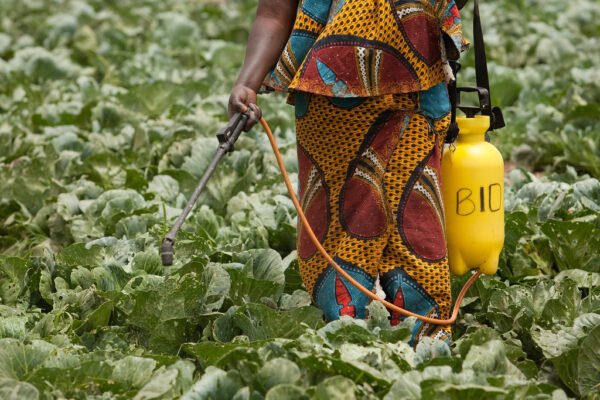In a landmark decision aimed at safeguarding public health, environmental safety, and aligning with global pesticide regulations, the Government of Kenya has officially withdrawn 77 pesticide products from the market.
This sweeping move follows a comprehensive scientific review conducted by the Pest Control Products Board (PCPB), the national authority mandated to regulate pest control substances in the country.
Agriculture Cabinet Secretary Mutahi Kagwe announced the decision during a media briefing in Nairobi, confirming that the affected products posed significant health and environmental risks, with many already banned in the European Union and under international scrutiny.
“We have taken decisive action to withdraw 77 products that have been scientifically proven to be hazardous to both humans and the environment,” said Kagwe.
“This is part of our broader commitment to ensuring that Kenyan agriculture remains both productive and sustainable.”
Thorough Review and International Alignment
The withdrawal stems from a review process that examined 430 pesticide formulations. Of these, 77 were deemed unfit for use and have now been fully removed from the Kenyan market.
An additional 202 products have been restricted, meaning they are now only permitted for use under strict conditions or on specific crops.
The remaining 151 products are still under evaluation, with final determinations expected by December 2025.
The importation and usage of these pending products has been temporarily suspended until the review is completed.
Some of the now-banned products include widely used chemicals such as Chlorpyrifos, Imidacloprid, Acephate, Diuron, Thiacloprid, Parathion, and Endosulfan — all known for their toxic effects on humans, pollinators, and aquatic life.
Stakeholder Support and Caution
The decision has been welcomed by consumer advocacy groups and environmental organizations.
The Route to Food Initiative and the Biodiversity and Biosafety Association of Kenya (BBAK) lauded the government’s action as a step toward safer food systems and ecological balance.
However, civil society organizations urged the Ministry of Agriculture and PCPB to publicly release the full list of banned pesticides, enhance enforcement mechanisms, and support farmers in transitioning to safer alternatives.
“With the withdrawal of these hazardous products, it is vital that the government educates farmers on safer pest control methods, including integrated pest management and biopesticides,” said Anne Maina, Coordinator at BBAK.
Challenges and the Way Forward
While the ban marks a progressive step, challenges remain. Experts warn of the potential for illegal pesticide circulation unless the government ramps up border control, public awareness, and surveillance in local markets.
The PCPB confirmed it will intensify training and compliance efforts, in partnership with agricultural extension officers and stakeholders across the country.
Kenya’s action mirrors growing global momentum to phase out harmful agrochemicals and move toward sustainable agricultural practices.
It also aligns with the country’s obligations under multilateral agreements such as the Stockholm and Rotterdam Conventions on persistent organic pollutants and hazardous chemicals.
What’s Next?
The government is expected to:
-
Publish a detailed list of banned and restricted pesticides.
-
Provide farmers with guidelines and subsidies for alternative pest control methods.
-
Monitor the market to ensure full compliance by agrochemical companies and distributors.
This bold step by Kenya positions the country as a regional leader in agri-safety policy, setting a precedent for other nations across Africa to reassess the long-term impacts of chemical use in farming.
Also Read
The Hidden Cost of Cheap Pesticides: Kenya’s Counterfeit Crisis
Chinese Researchers Charged in U.S. for Smuggling Crop-Killing Fungus
